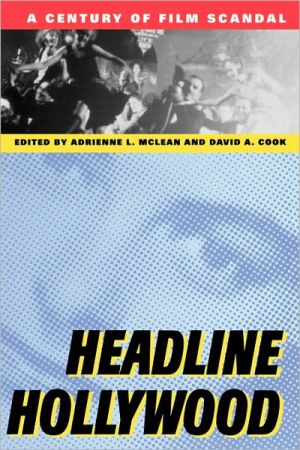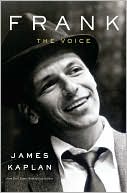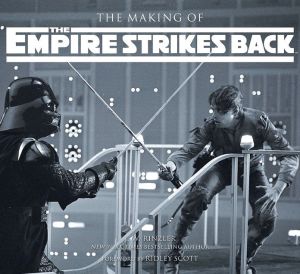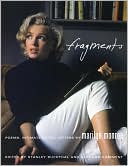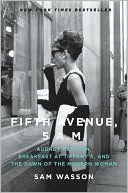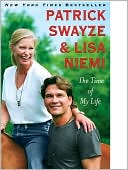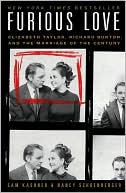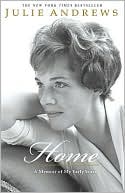Headline Hollywood
Hollywood has long been associated with scandal--with covering it up, with managing its effects, and, in some cases, with creating and directing it. In putting together Headline Hollywood, Adrienne McLean and David Cook approach the relationship between Hollywood and scandal from a fresh perspective. The contributors consider some of the famous transgressions that shocked Hollywood and its audiences during the last century, and explore the changing meaning of scandal over time by zeroing in...
Search in google:
Hollywood has long been associated with scandal--with covering it up, with managing its effects, and, in some cases, with creating and directing it. In putting together Headline Hollywood, Adrienne McLean and David Cook approach the relationship between Hollywood and scandal from a fresh perspective. The contributors consider some of the famous transgressions that shocked Hollywood and its audiences during the last century, and explore the changing meaning of scandal over time by zeroing in on issues of power: Who decides what crimes and misdemeanors should be circulated for public consumption and titillation? What makes a Hollywood scandal scandalous? What are the uses of scandal? The essays are arranged chronologically to show how Hollywood scandals have evolved relative to changing moral and social orders. This collection will prove essential to the field of film studies as well as to anyone interested in the character and future direction of American culture. Contributors are Mark Lynn Anderson, Cynthia Baron, James Castonguay, Nancy Cook, Mary Desjardins, Lucy Fischer, Lee Grieveson, Erik Hedling, Peter Lehman, William Luhr, Adrienne L. McLean, Susan McLeland, and Sam Stoloff. Adrienne L. McLean is an assistant professor of film studies at the University of Texas at Dallas. David A. Cook is a professor of film and media studies at Emory University. He is the author of A History of Film Narrative. Kirkus Reviews A well-constructed anthology that provides satisfying meditations on film scandals both notorious and obscure. McLean (Film Studies/Univ. of Texas) and Cook (A History of Narrative Film, not reviewed) assemble a cast of contributors who examine the"enormously potent and diverse historical, cultural, and ideological meanings" of such star scandals as Fatty Arbuckle's manslaughter trial and Wallace Reid's narcotics addiction. Sam Stoloff takes a novel approach to understanding Arbuckle (arguably the first mediated cinema scandal) by juxtaposing his moralized, melodramatic fall from grace with the concurrent Chicago White Sox scandal, noting how each resulted in self-imposed autocratic controls upon the respective industries. Mark Anderson sensitively traces how overworked early star Reid succumbed to the nascent film colony's accessible drug scene, and how his demise was shamelessly exploited in campaigns to criminalize addiction. Nancy Cook resurrects a fascinating obscurity from Hollywood's long-tortured relationship with race: the tale of Long Lance, a celebrated Ojibwa Indian who in 1928 starred in an"all-Indian" melodrama The Silent Enemy and was subsequently ruined by accusations (from other cast members) that he was, in fact, Negro. An important chapter by Cynthia Baron concerns the 1948 Red-baiting of the Actors' Laboratory (a prominent theater company and school); its members were all blacklisted in a pungent prelude to McCarthyism. Other significant discussions concern the role of 1950s magazines like Confidential in"systematizing" scandal, and the travails encountered by pioneers of sexual independence (such as Hedy Lamarr, Ingrid Bergman, Rita Hayworth, and Jane Fonda).Theseare lively and culturally novel explorations; unfortunately, most of the writers fall back at points upon abstruse and alienating academic prose. Still, these crystalline snapshots of a long-gone Hollywood should please most cinéastes.
\ Kirkus ReviewsA well-constructed anthology that provides satisfying meditations on film scandals both notorious and obscure. McLean (Film Studies/Univ. of Texas) and Cook (A History of Narrative Film, not reviewed) assemble a cast of contributors who examine the"enormously potent and diverse historical, cultural, and ideological meanings" of such star scandals as Fatty Arbuckle's manslaughter trial and Wallace Reid's narcotics addiction. Sam Stoloff takes a novel approach to understanding Arbuckle (arguably the first mediated cinema scandal) by juxtaposing his moralized, melodramatic fall from grace with the concurrent Chicago White Sox scandal, noting how each resulted in self-imposed autocratic controls upon the respective industries. Mark Anderson sensitively traces how overworked early star Reid succumbed to the nascent film colony's accessible drug scene, and how his demise was shamelessly exploited in campaigns to criminalize addiction. Nancy Cook resurrects a fascinating obscurity from Hollywood's long-tortured relationship with race: the tale of Long Lance, a celebrated Ojibwa Indian who in 1928 starred in an"all-Indian" melodrama The Silent Enemy and was subsequently ruined by accusations (from other cast members) that he was, in fact, Negro. An important chapter by Cynthia Baron concerns the 1948 Red-baiting of the Actors' Laboratory (a prominent theater company and school); its members were all blacklisted in a pungent prelude to McCarthyism. Other significant discussions concern the role of 1950s magazines like Confidential in"systematizing" scandal, and the travails encountered by pioneers of sexual independence (such as Hedy Lamarr, Ingrid Bergman, Rita Hayworth, and Jane Fonda).Theseare lively and culturally novel explorations; unfortunately, most of the writers fall back at points upon abstruse and alienating academic prose. Still, these crystalline snapshots of a long-gone Hollywood should please most cinéastes.\ \
